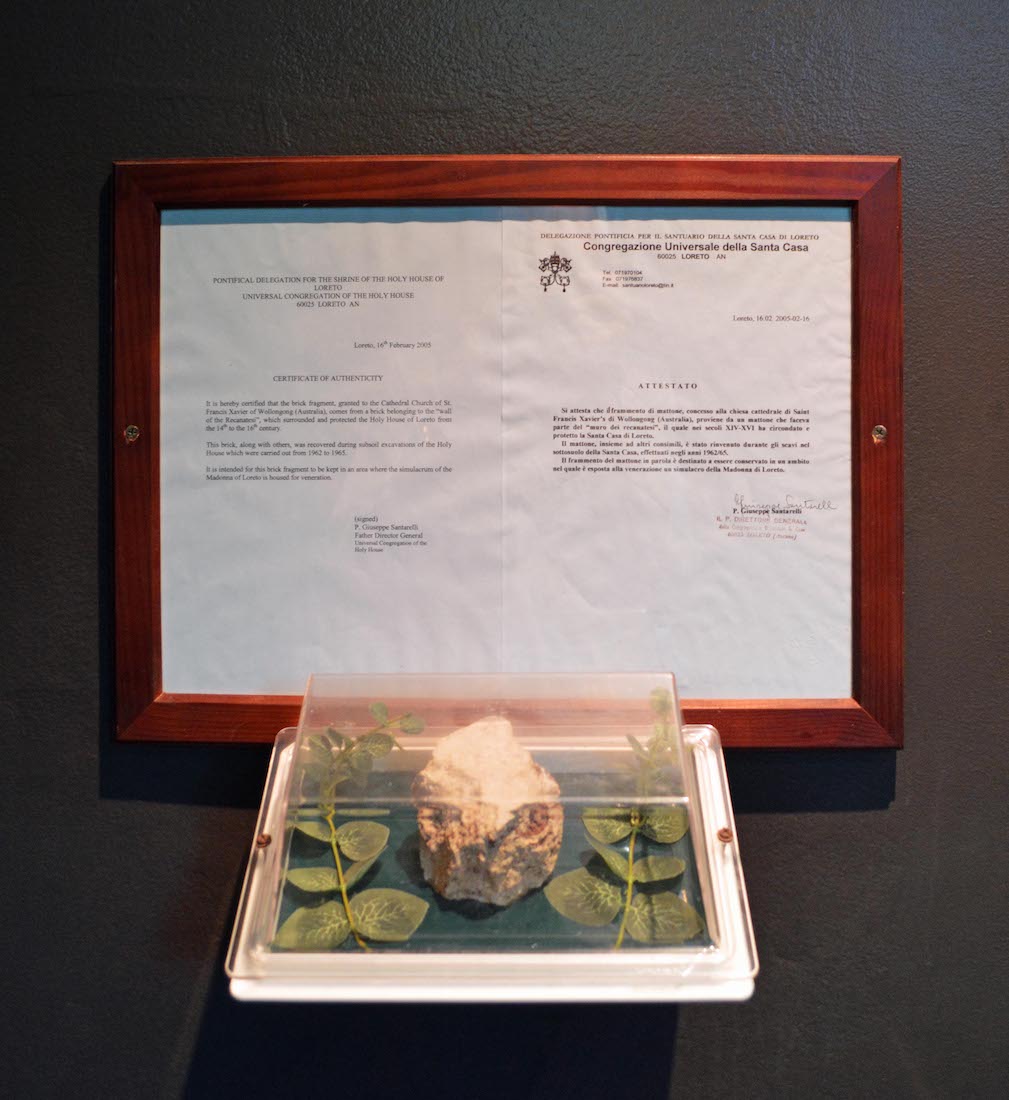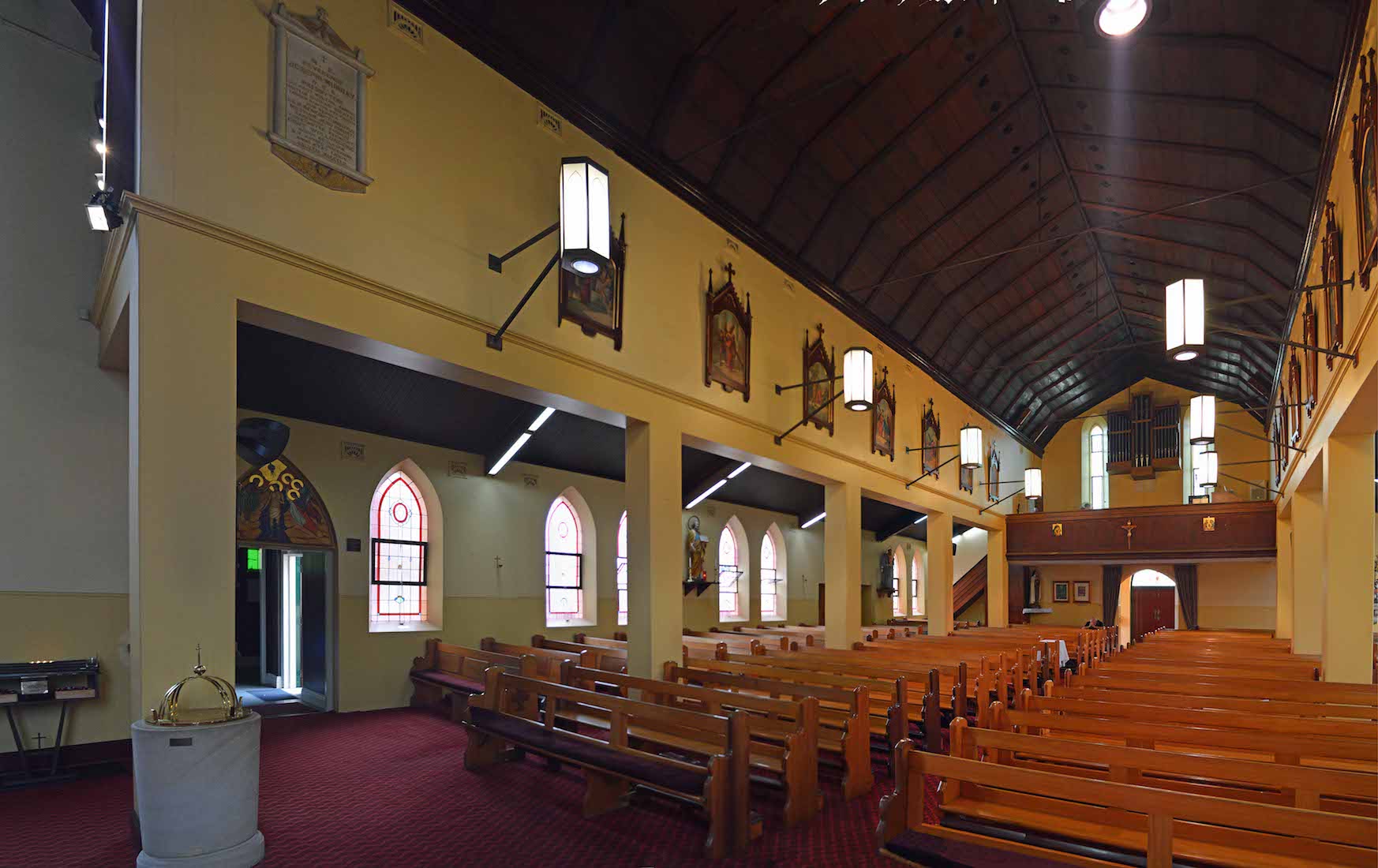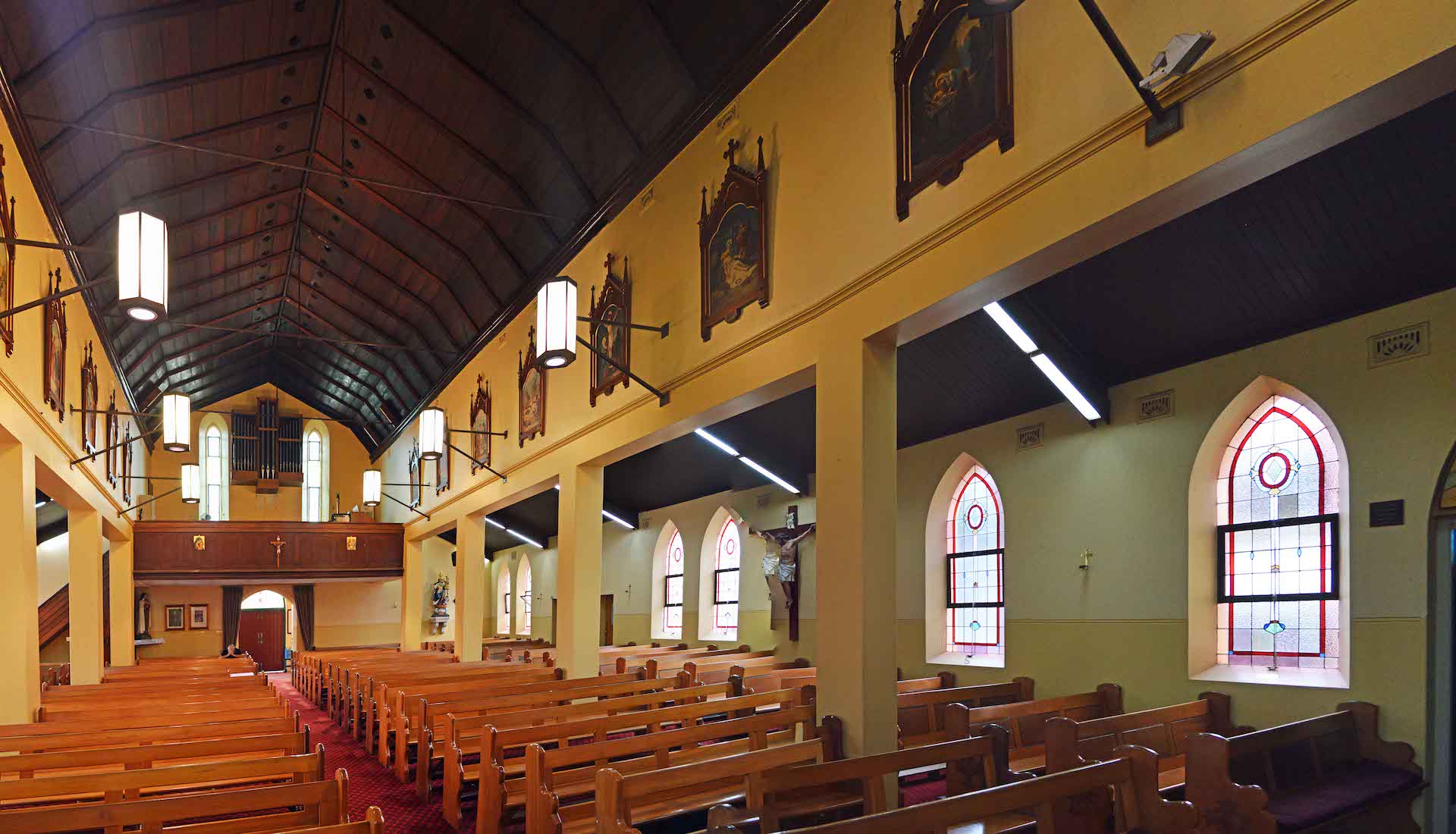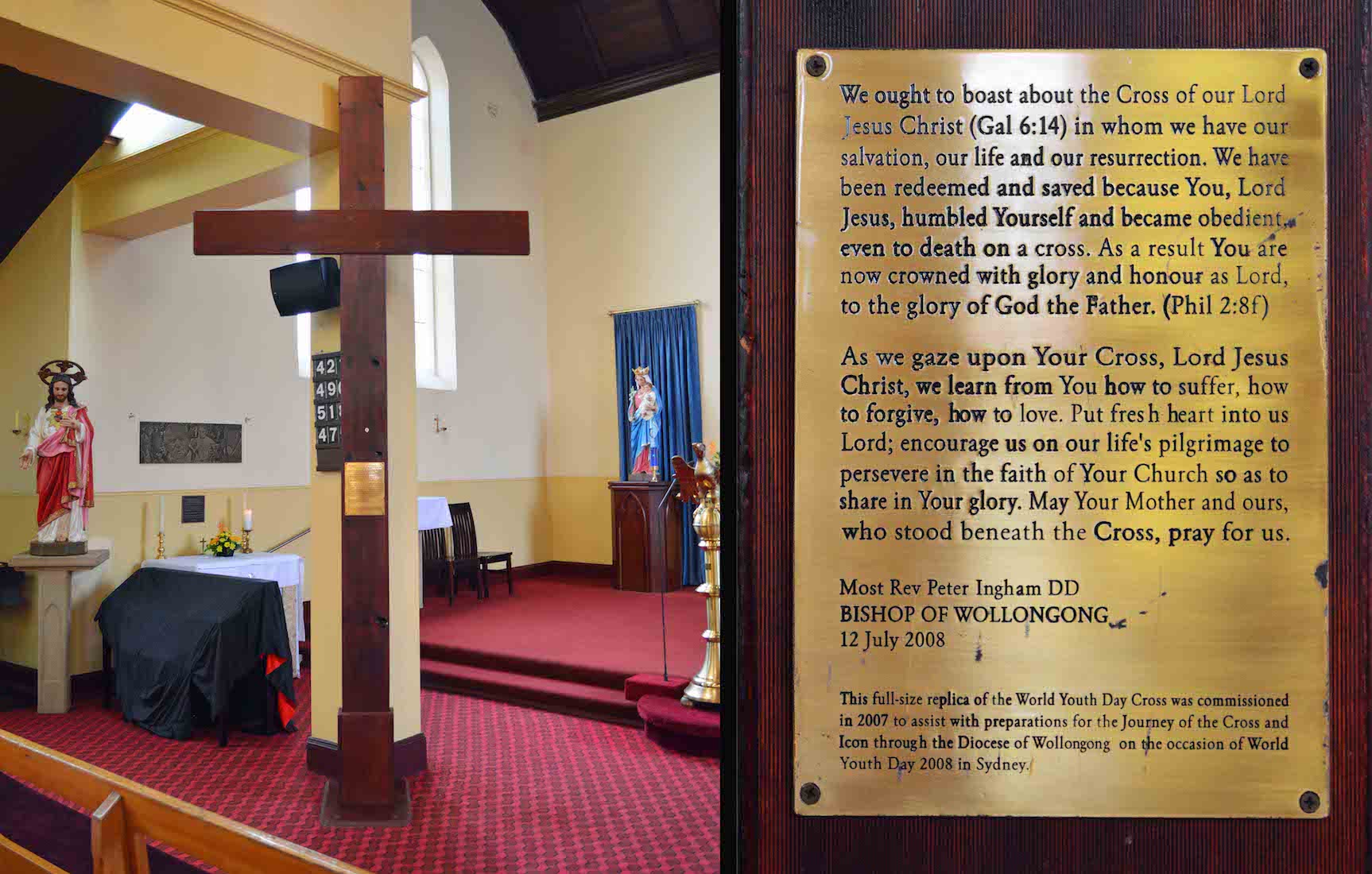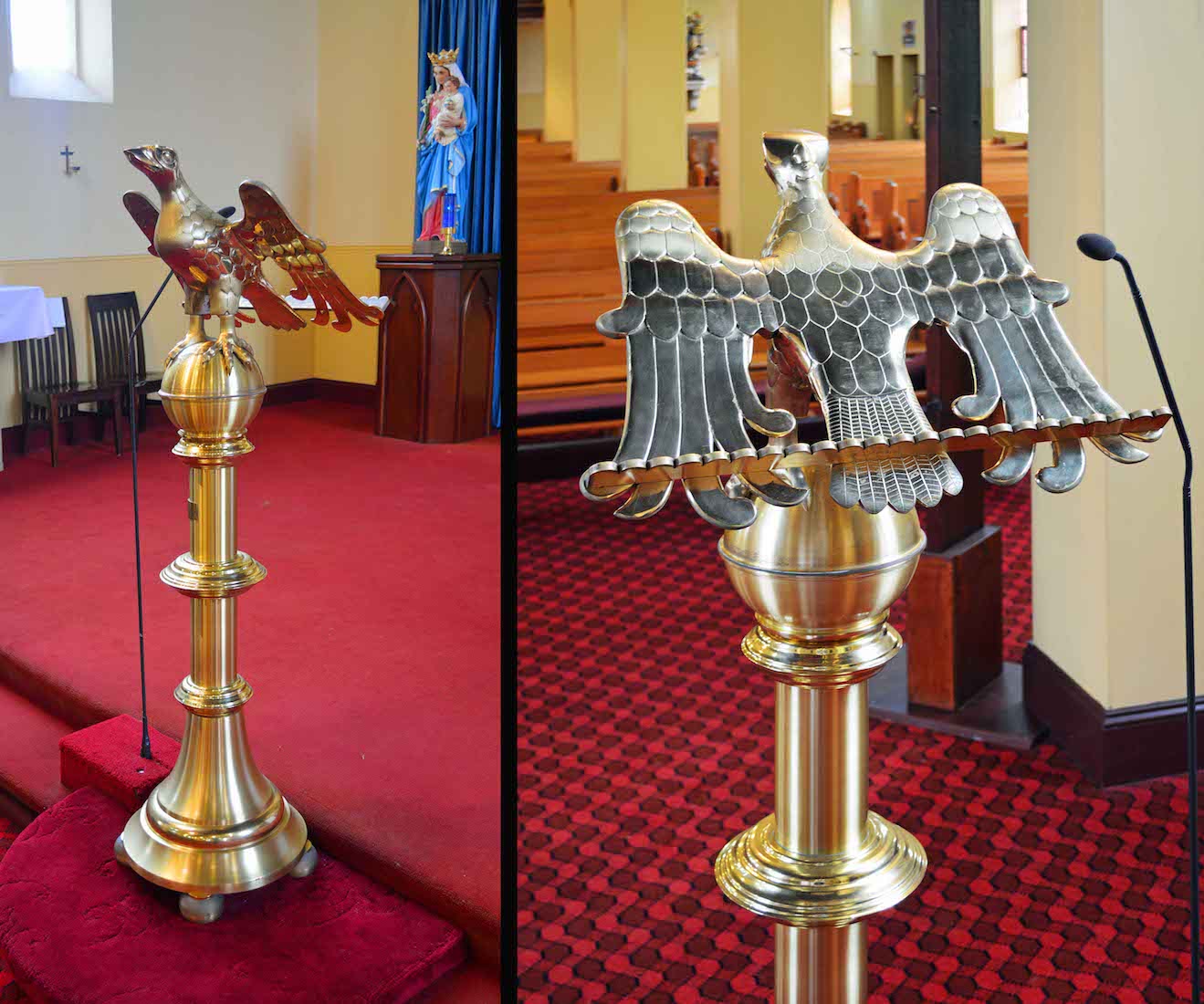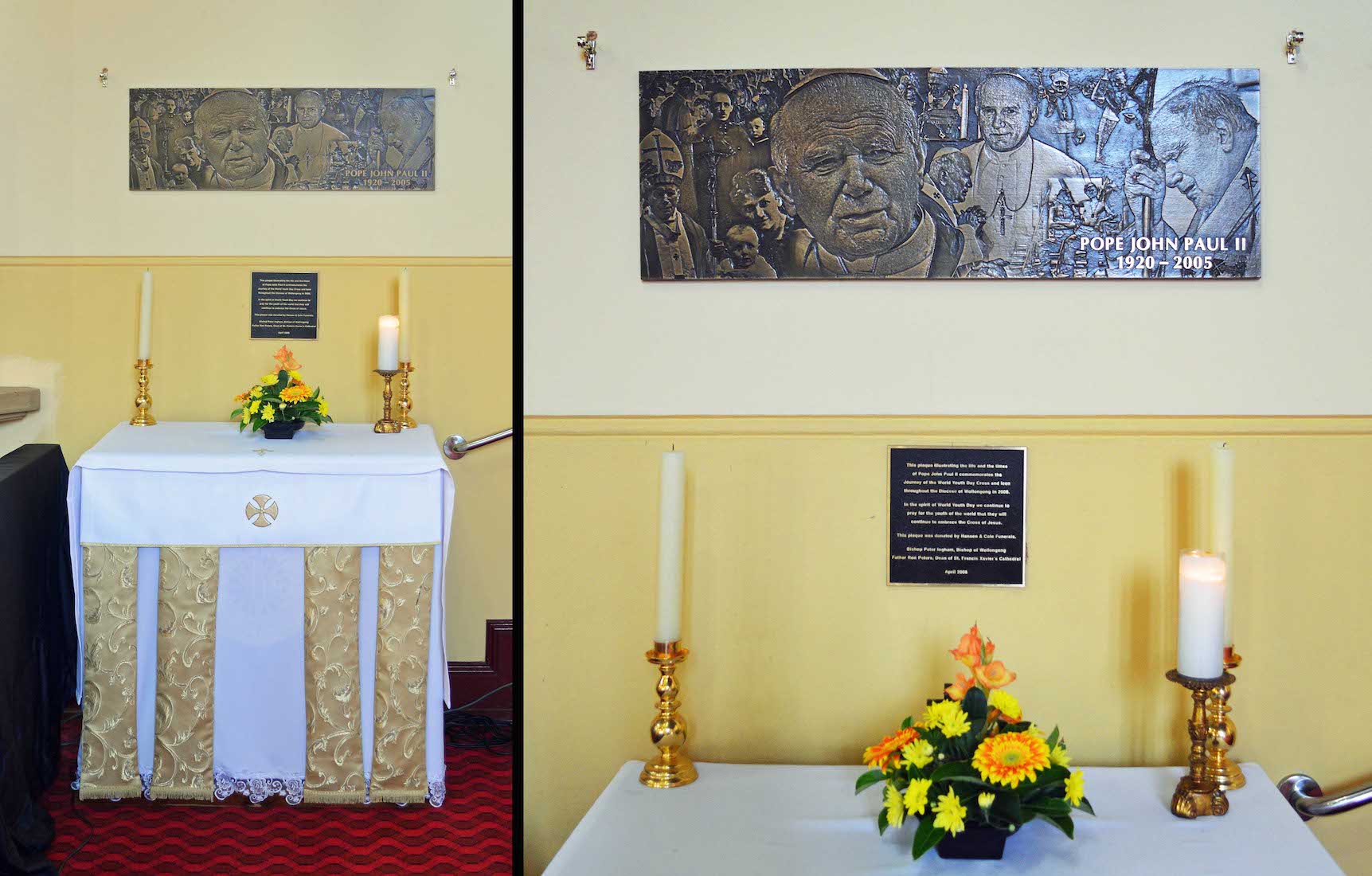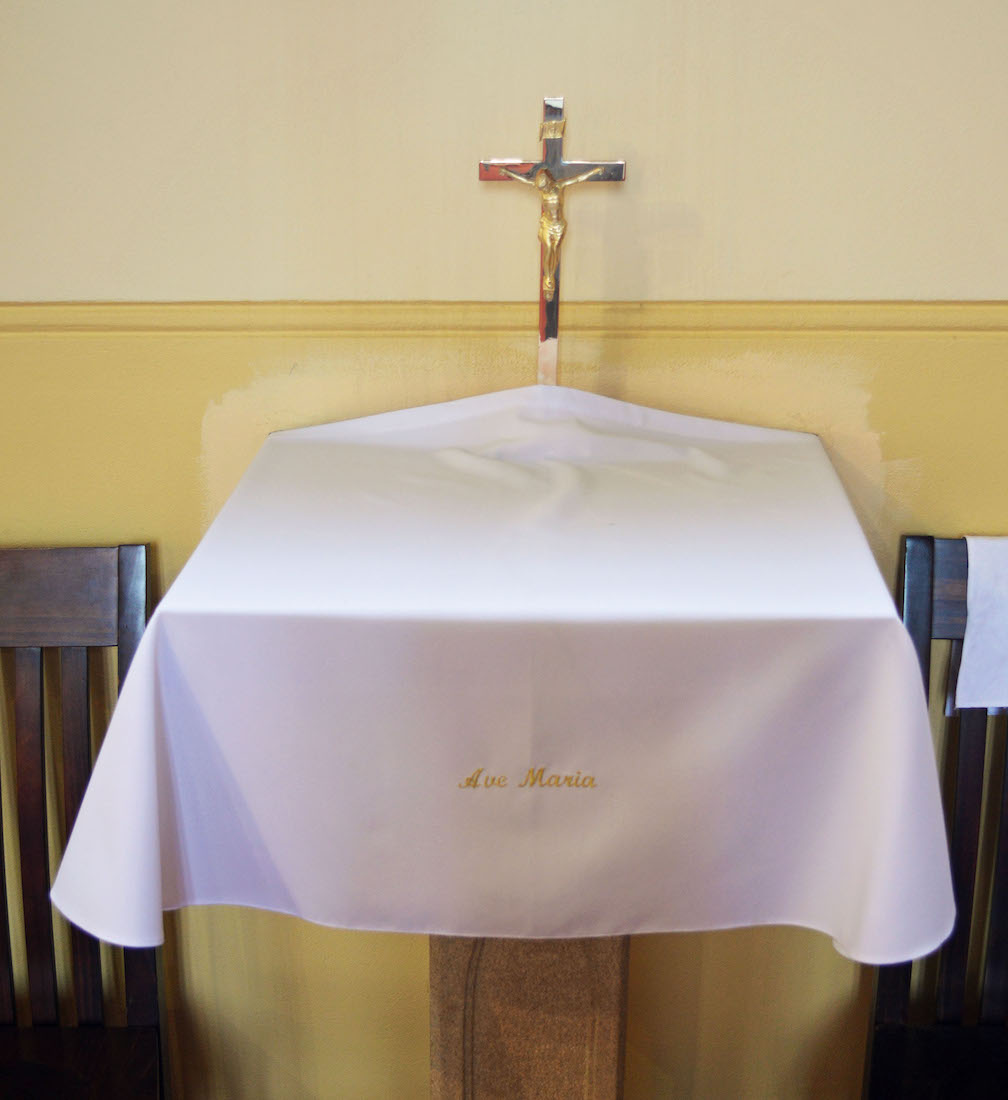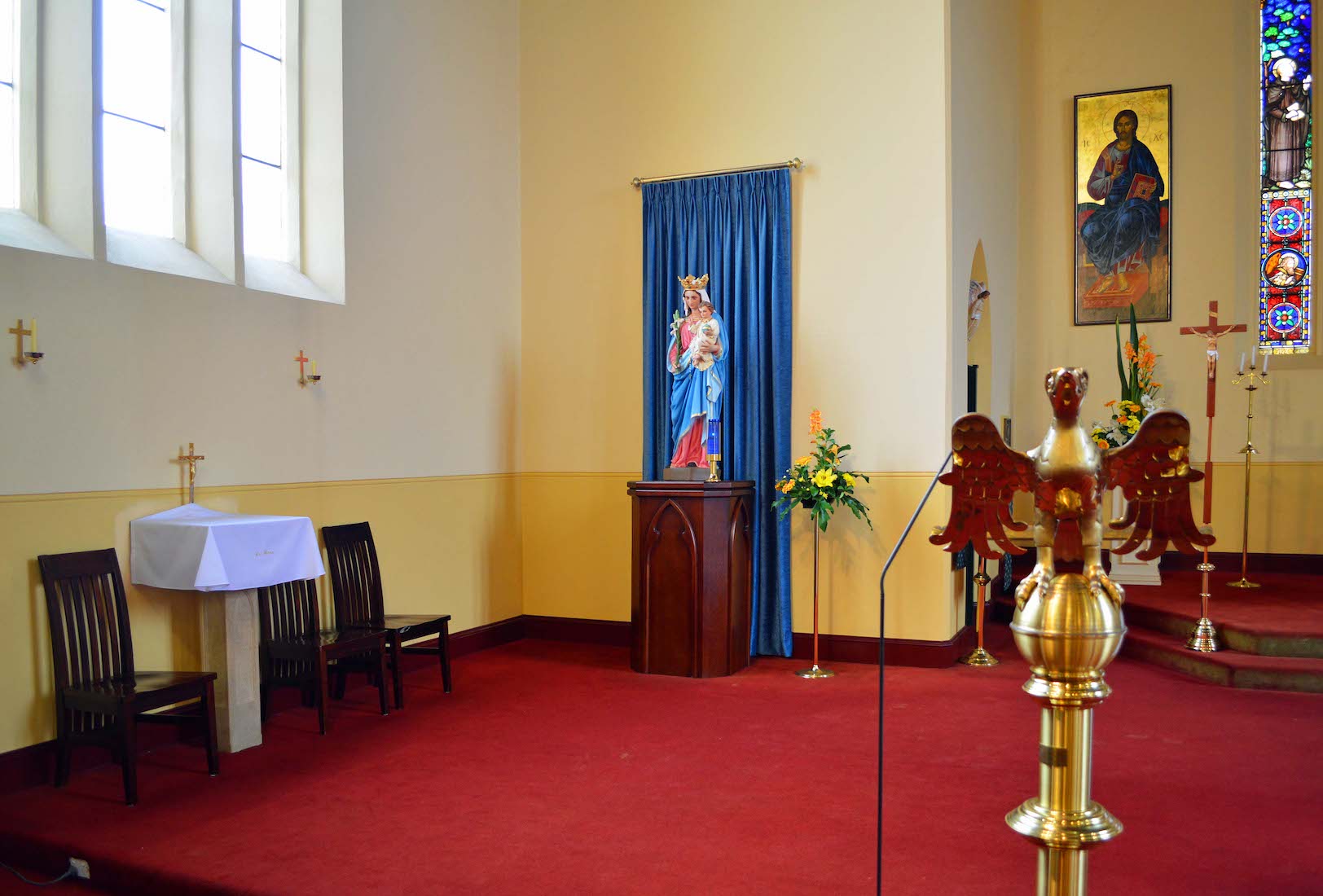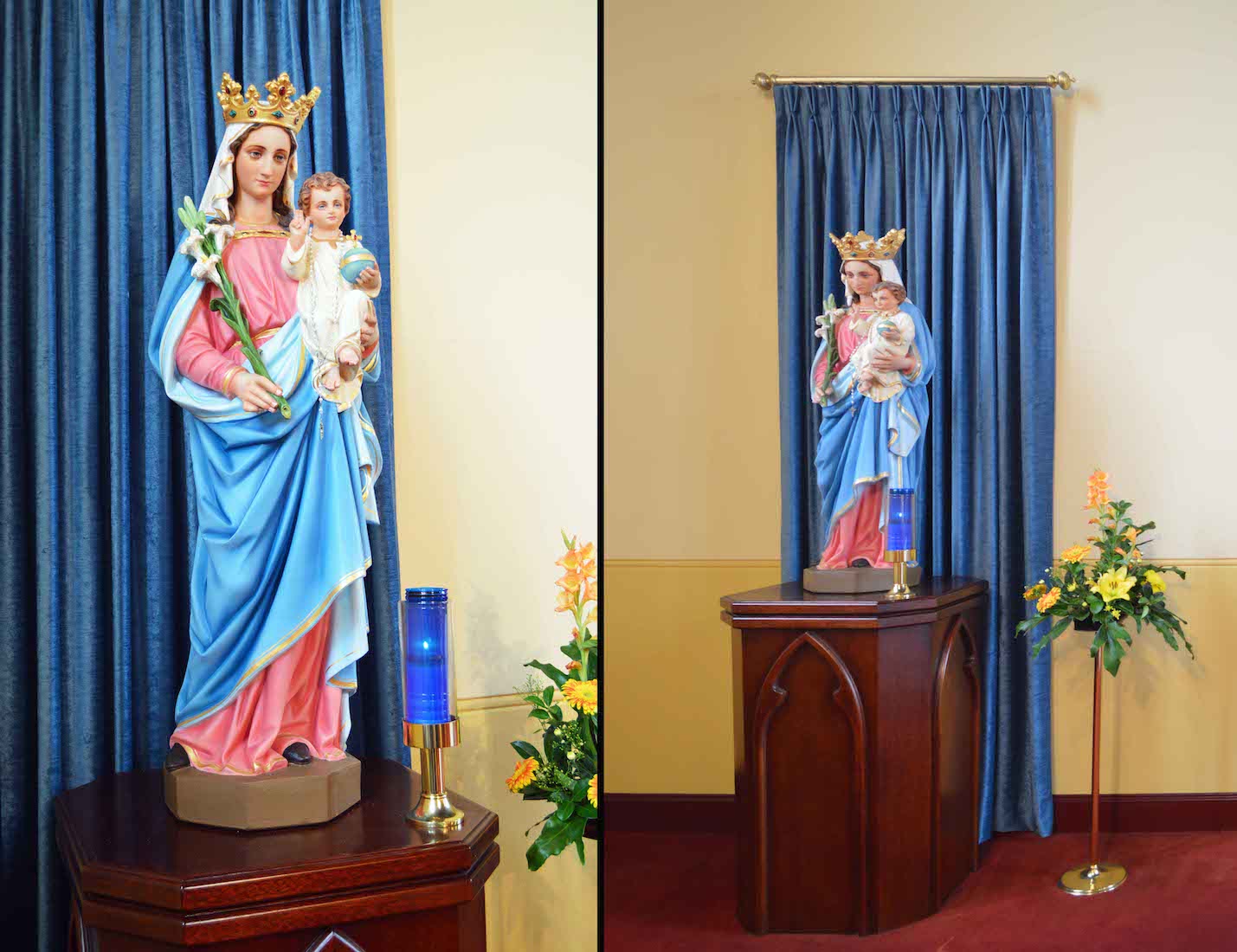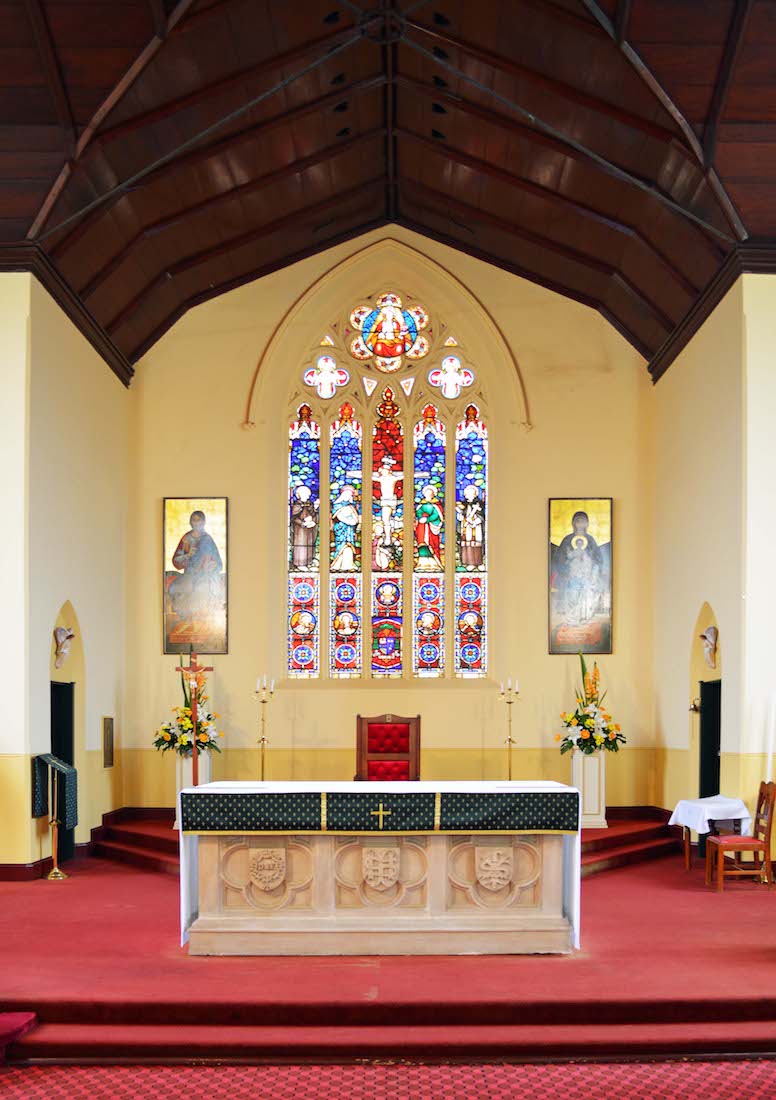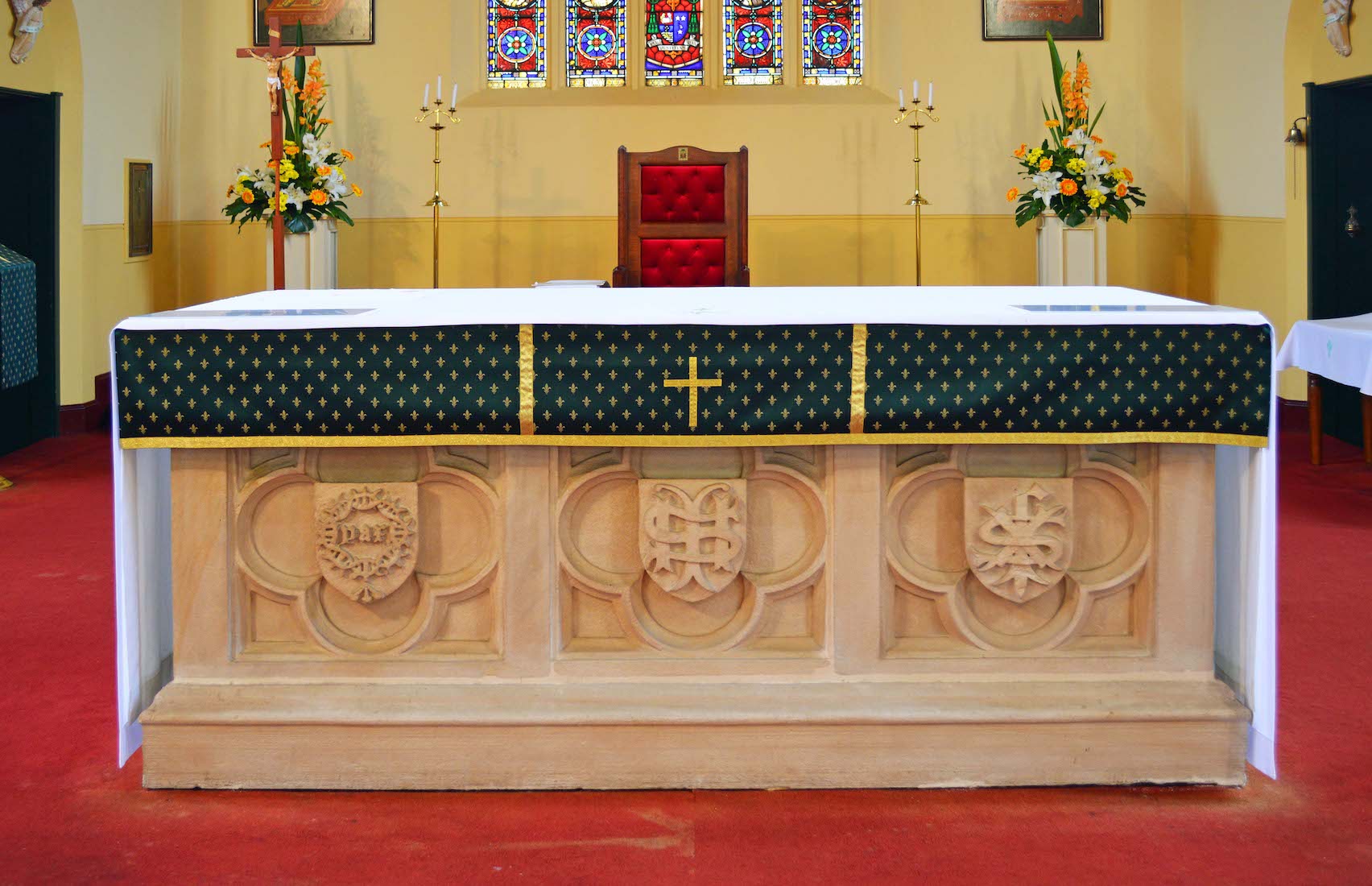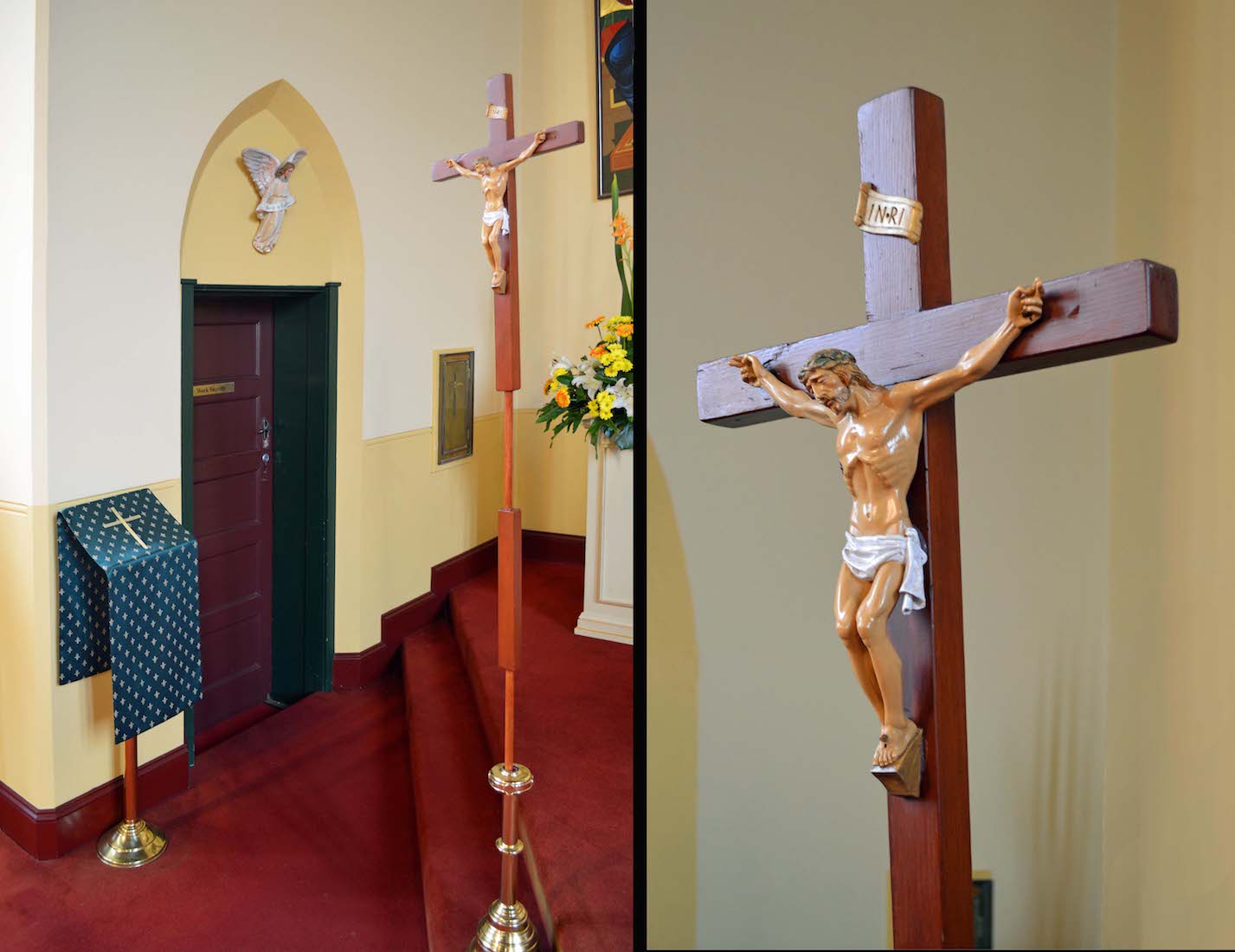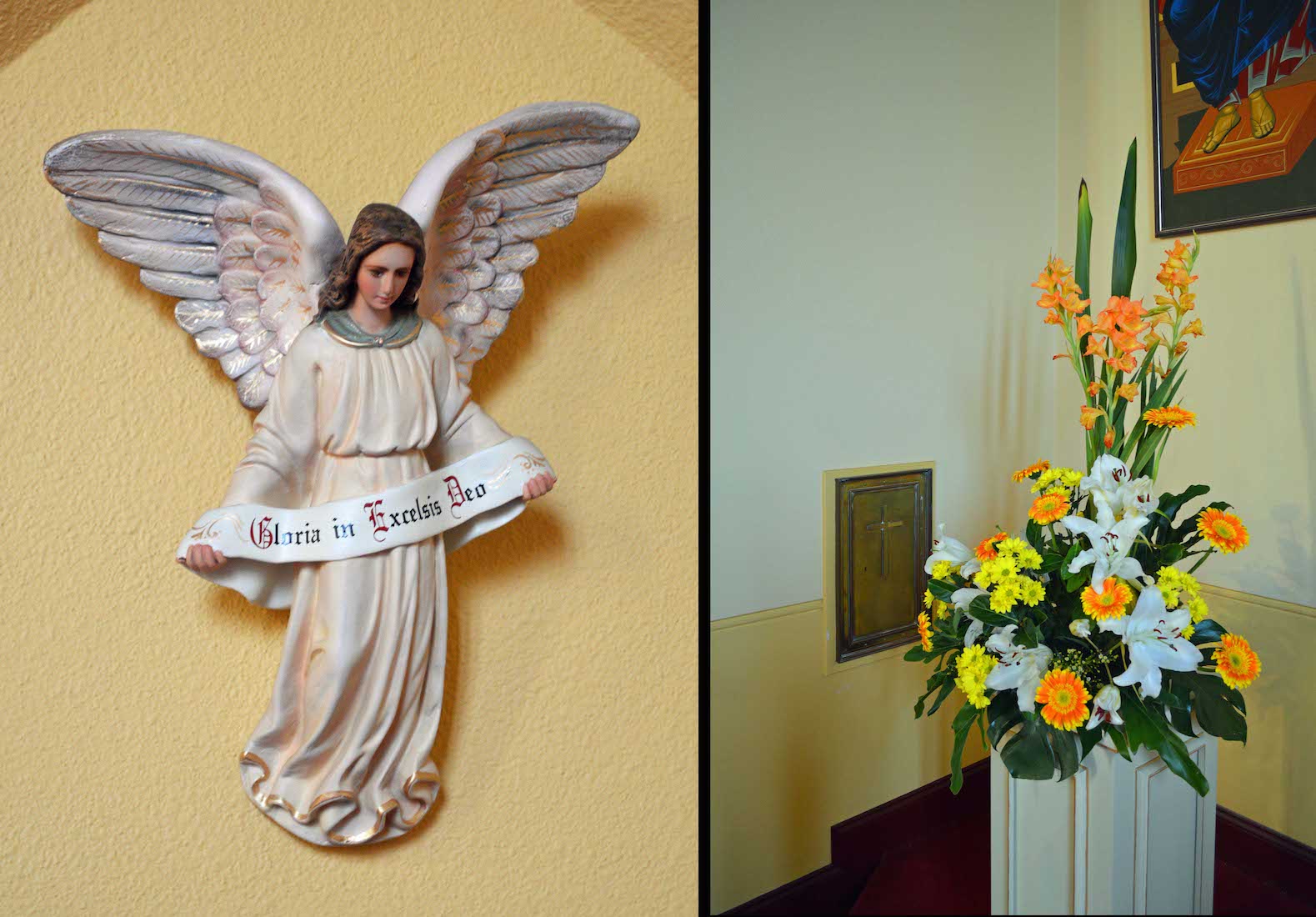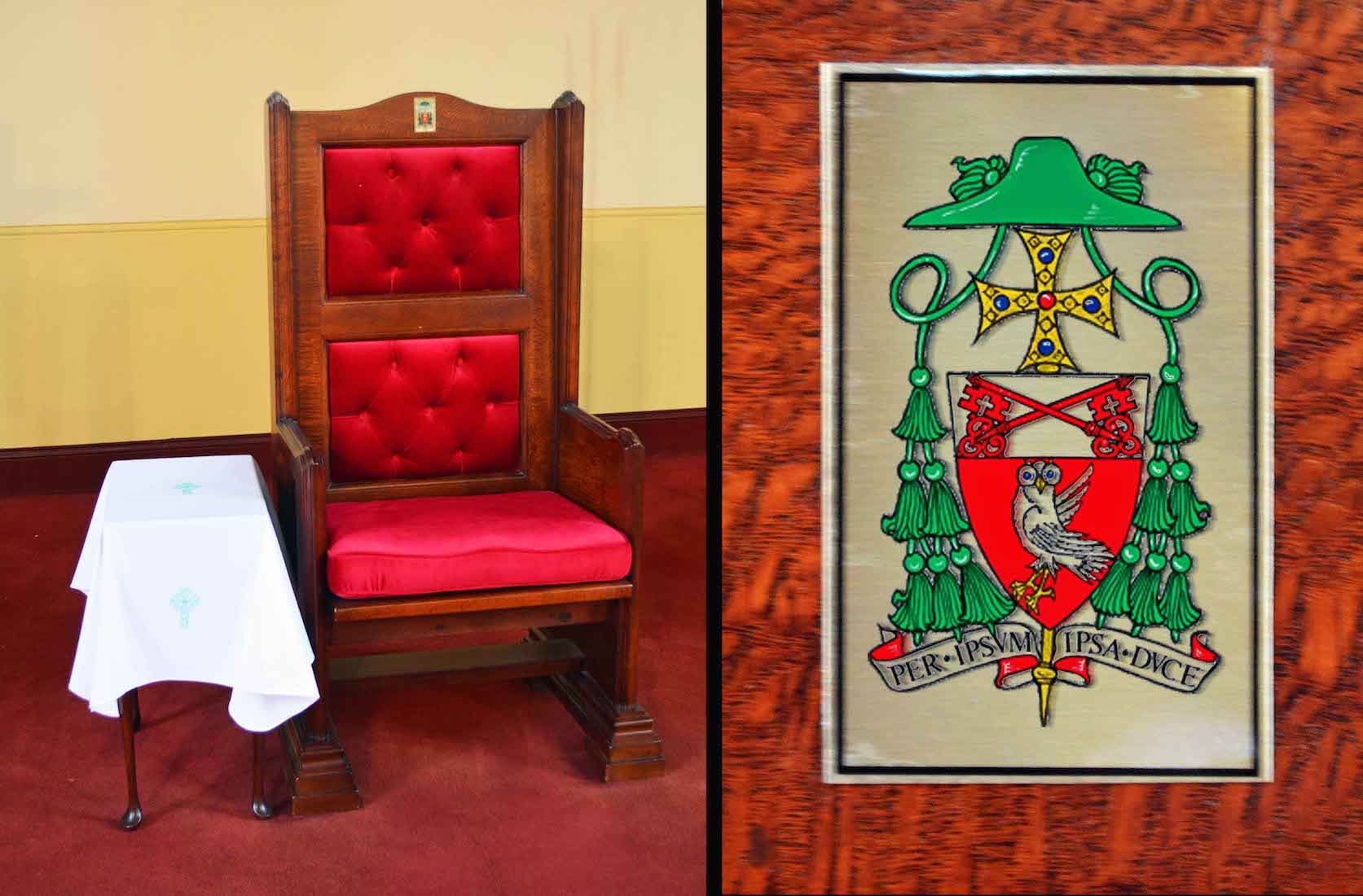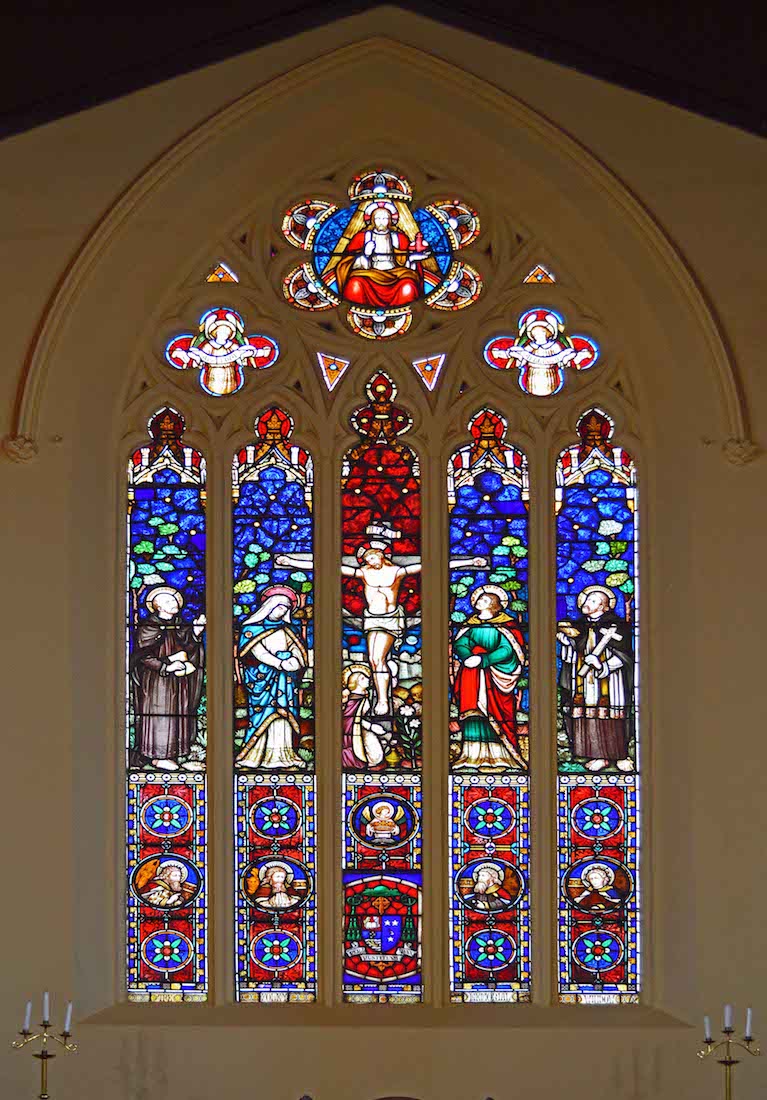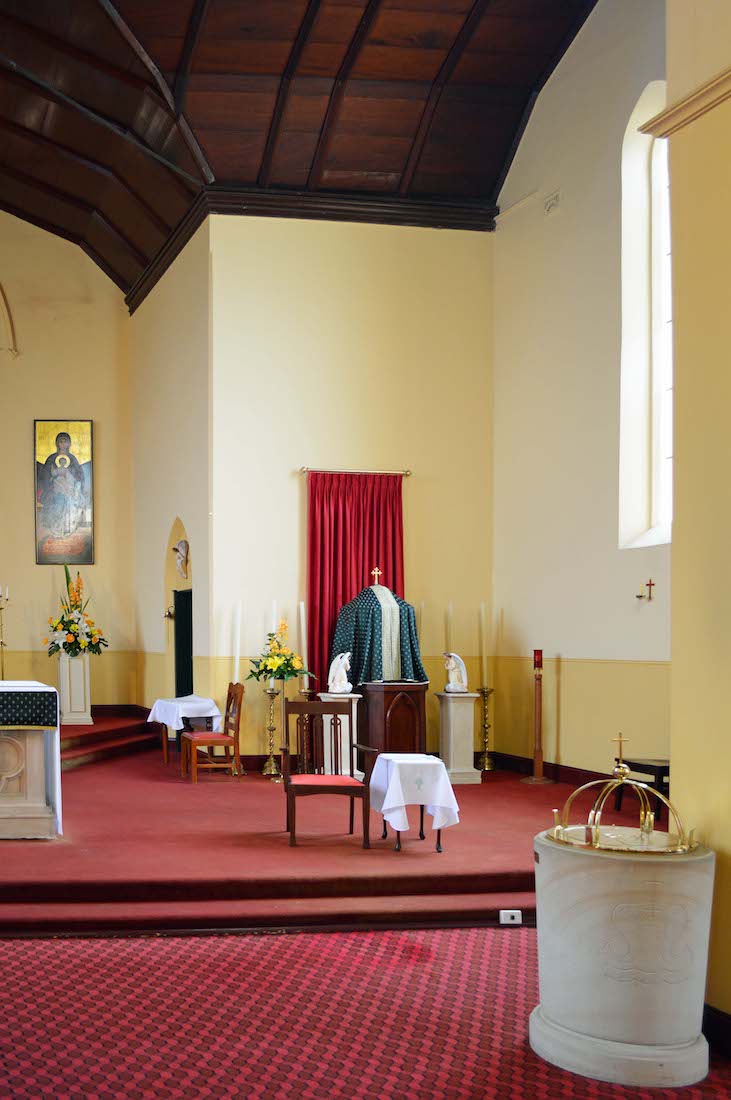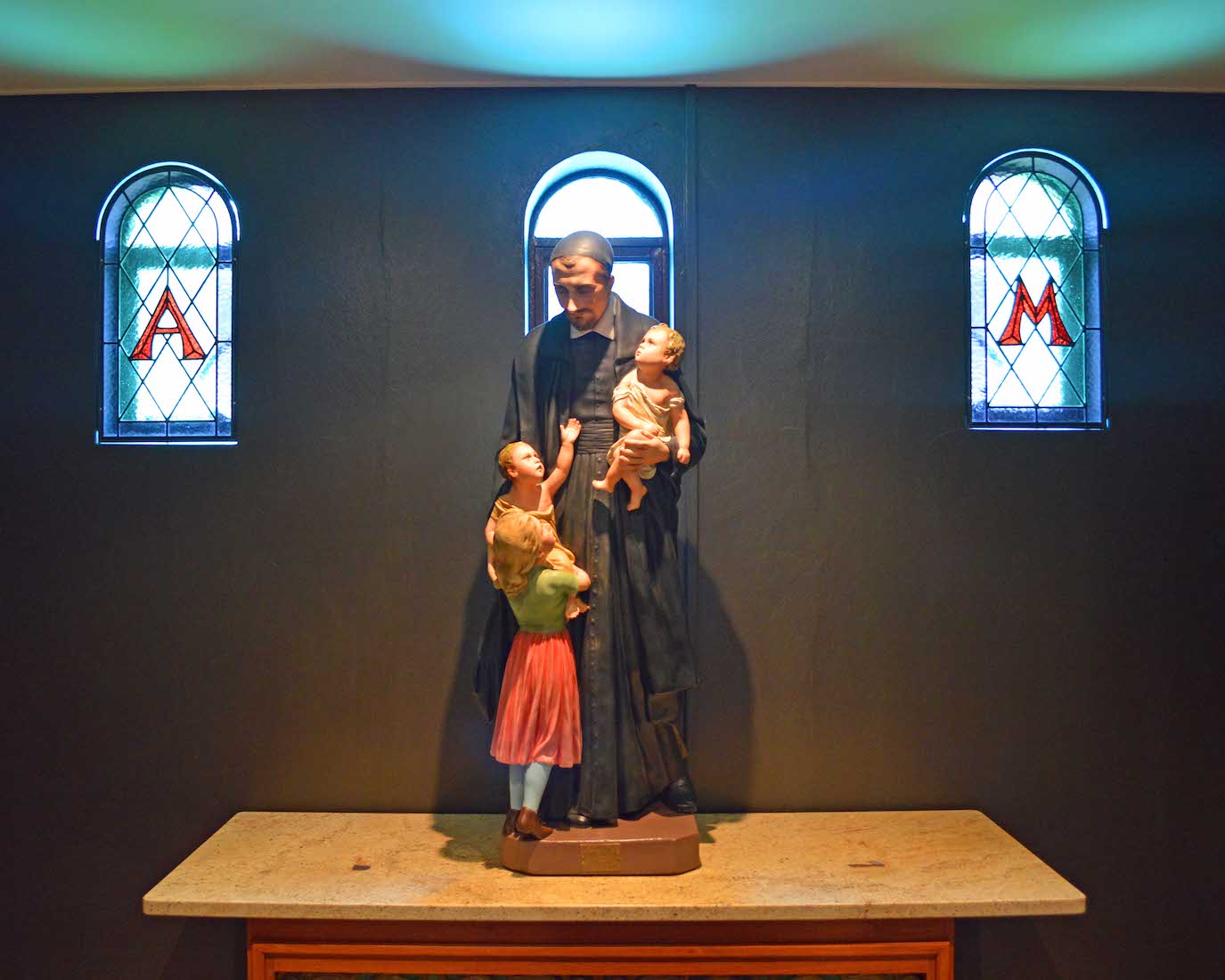
The unusual altar setting shows St John Vianney in the company of three small children. The message is the love of God is shared through us to all people. The windows carry the symbols A for Alpha (Christ) and M for Mary. INDEX
42. ALTAR FIGURES
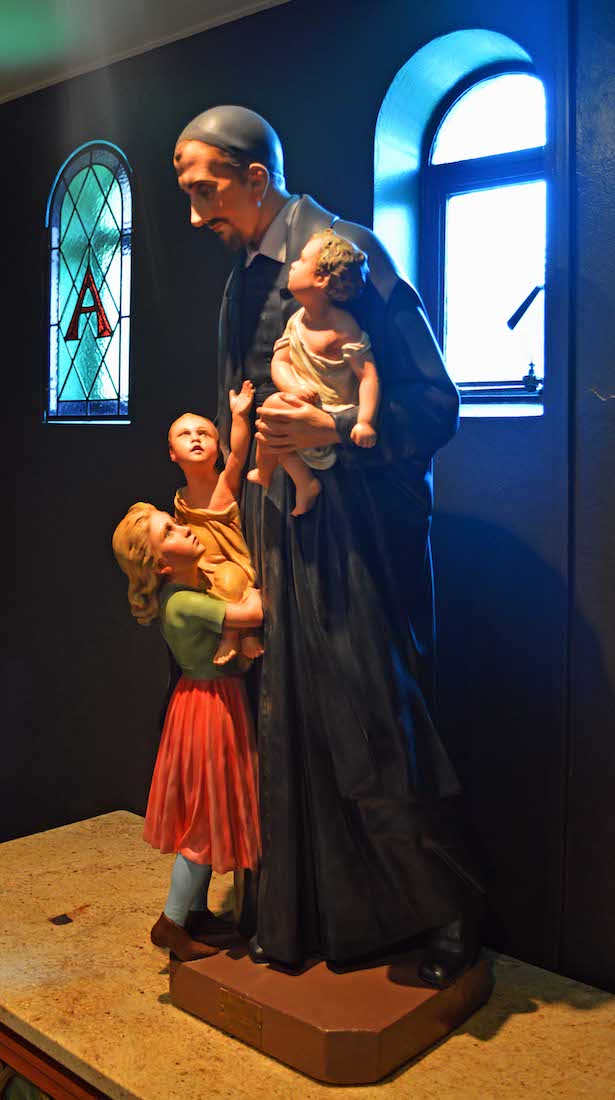
A closer view of the chapel altar setting ... . Jean-Baptiste-Marie Vianney, T.O.S.F., 1786 – 1859, commonly known in English as St John Vianney, was a French parish priest who is venerated in the Catholic Church as a saint and as the patron saint of parish priests. He became internationally notable for his priestly and pastoral work in his parish because of the radical spiritual transformation of the community and its surroundings.
43. LORETO BRICK
On the rear wall of this side chapel is this fragment of Loreto brick dating from the 14th to 16th century. It is common for small portions of brick or stone from important buildings to be kept in cathedrals: it fosters the thought of a wider unity of belief.
44. SOUTH NAVE
Leaving the North side chapel we return to the front of the nave. Looking back, we notice once more the stations of the Cross, and the Western balcony and organ.
45. NORTH NAVE
Here is a similar view looking back from the other side.
46. NAVE CROSS
At the front of the nave is this large wooden cross. This is a full-size replica of the World Youth Day Cross. It was commissioned in 2007 to assist with preparations for the Journey of the Cross and Icon through the Diocese of Wollongong on the occasion of World Youth Day 2008 in Sydney.
47. LECTERN
Most cathedrals (and many churches) have an eagle lectern for reading the Scripture. The eagle is the bird which flies closest to heaven (refer Isaiah 40:31), and is also the symbol for the Evangelist St John whose Gospel is much loved.
48. RETABLE AND POPE JOHN PAUL II PLAQUE
To the side of the sanctuary stands this small retable, above which is a plaque given in 2008 illustrating the life and times of Pope John Paul II.
49. SMALL TABLE AND CRUCIFIX
A little further along this North wall of the sanctuary is this small table and crucifix.
51. OUR LADY
There are many statues of Mary in existence. She is usually dressed in blue, signifying purity, and the lily sprig has a similar meaning. The modern shoes are rather unlikely, but are designed to withstand the attentions of adoring pilgrims!
53. NAVE ALTAR
These days the ‘nave altar’ is placed forward in a Cathedral to be close to the congregation. This altar carries three emblems (from left): PAX (peace), IHS (the first letters of ‘Jesus’ in Greek, and SFX (St Francis Xavier).
54. PROCESSIONAL CRUCIFIX
The processional Cross or Crucifix is carried Sunday by Sunday, leading the procession of clergy into the Cathedral.
55. ANGEL AND AUMBRY
The angel above the North sacristy door carries the message ‘Glory to God in the highest’. In the back corner is an aumbry which houses the blessed Elements of the Eucharist – the Bread and Wine.
56. NORTH ICON
This icon of Christ has an almost Oriental feel. In Eastern Christianity, the Christogram ΙϹΧϹ is a traditional abbreviation of the Greek words for ‘Jesus Christ’ (i.e., the first and last letters of each of the words ΙΗΣΟΥΣ ΧΡΙΣΤΟΣ — written ‘ΙΗϹΟΥϹ ΧΡΙϹΤΟϹ’ with the lunate sigma ‘Ϲ’ common in medieval Greek).
57. CATHEDRA AND CREST
The cathedra (from the Greek for seat or throne) is the bishop’s chair, and carries his crest. The presence of this seat in a church indicates that the church is central within its diocese, and gives the church the right to be called a ‘cathedral’.
58. EAST WINDOW
The East window shows a crucifixion scene with the Cross at centre and Mary and John standing close by. Two saints stand a little farther off. Across the base are the Four Evangelists.
59. SOUTH SANCTUARY
On the South side of the sanctuary we see another icon, another angel above the side door, the covered tabernacle, and in the foreground, the baptismal font.
60. SOUTH ICON
The South icon shows Mary holding the Infant Jesus. The letters MPOY are short for ‘ΜΗΤΗΡ ΘΕΟΥ’ (Mother of God) in Greek.


